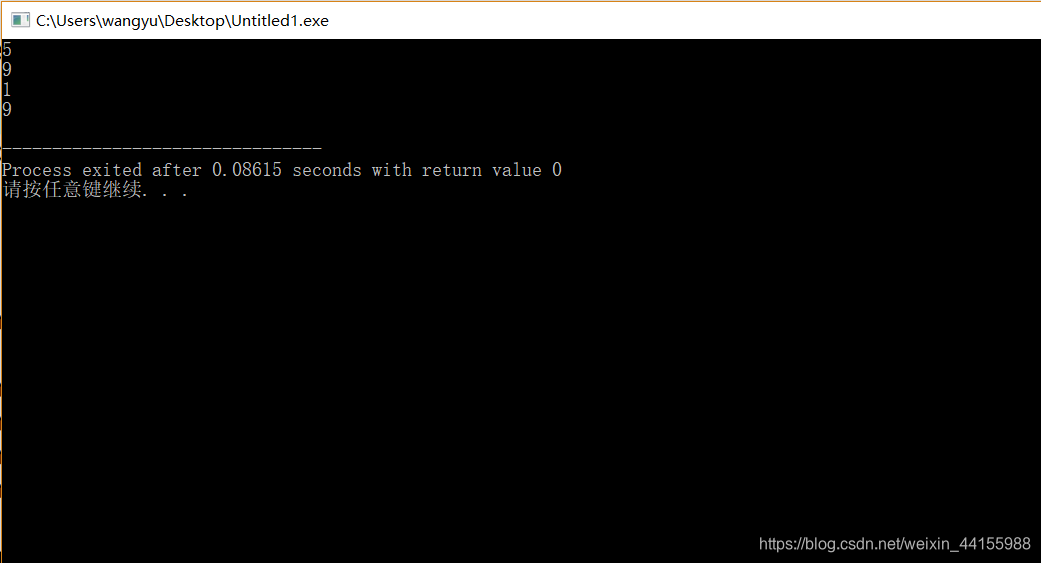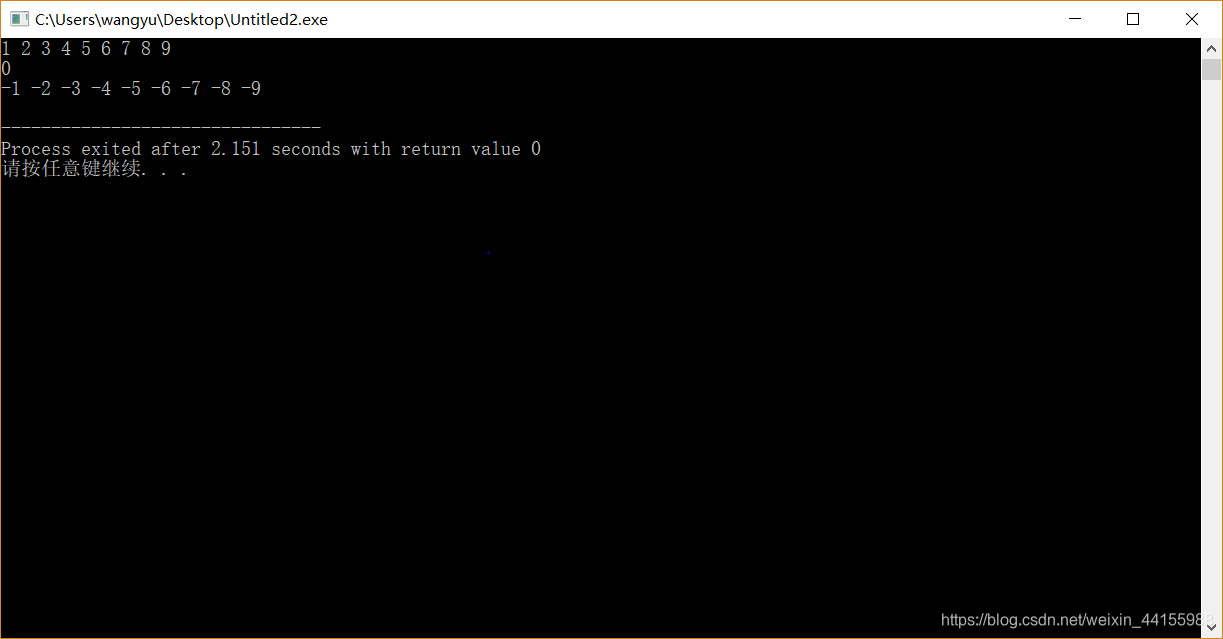//(1)统计一个整数n是几位数
//例如:12345->5(12345是5位数);123456789->9(123456789是9位数)
0->1; -123456789->9**
//代码如下:
#include <stdio.h>
#include <math.h>
#include <ctype.h>
int GetFigures(int n)
{
if(n==0)
return 1;
int count = 0;
while(n!=0)
{
n/=10;
count++;
}
return count;
}
int main()
{
printf("%d\n",GetFigures(12345));
printf("%d\n",GetFigures(123456789));
printf("%d\n",GetFigures(0));
printf("%d\n",GetFigures(-123456789));
return 0;
}
运行分析:
//(2)逆序输出整数N的每一位数字
12345789->9 8 7 6 5 4 3 2 1
得到个位数n%10
//代码如下:
#include <stdio.h>
#include <math.h>
#include <ctype.h>
void PrintReverse(int n)
{
if (n < 0)
{
printf("-");
n = -n;
}
do
{
printf("%d ",n%10);
n /= 10;
} while (n != 0);
printf("\n");
}
int main()
{
PrintReverse(123456789);
PrintReverse(0);
PrintReverse(-123456789);
return 0;
}
运行分析:
//(3)顺序输出十进制n的每一个数字
//代码如下:
#include <stdio.h>
#include <math.h>
#include <ctype.h>
int GetFigures(int n)
{
if(n==0)
return 1;
int count = 0;
while(n!=0)
{
n/=10;
count++;
}
return count;
}
void PrintOrder(int n)
{
int count = GetFigures(n);
int power = (int)pow(10.0,(count-1));
do
{
printf("%d ",n/power);
n %= power;
power /= 10;
} while (n!=0);
printf("\n");
}
int main()
{
PrintOrder(123456789);
PrintOrder(0);
PrintOrder(-123456789);
return 0;
}
运行分析:


